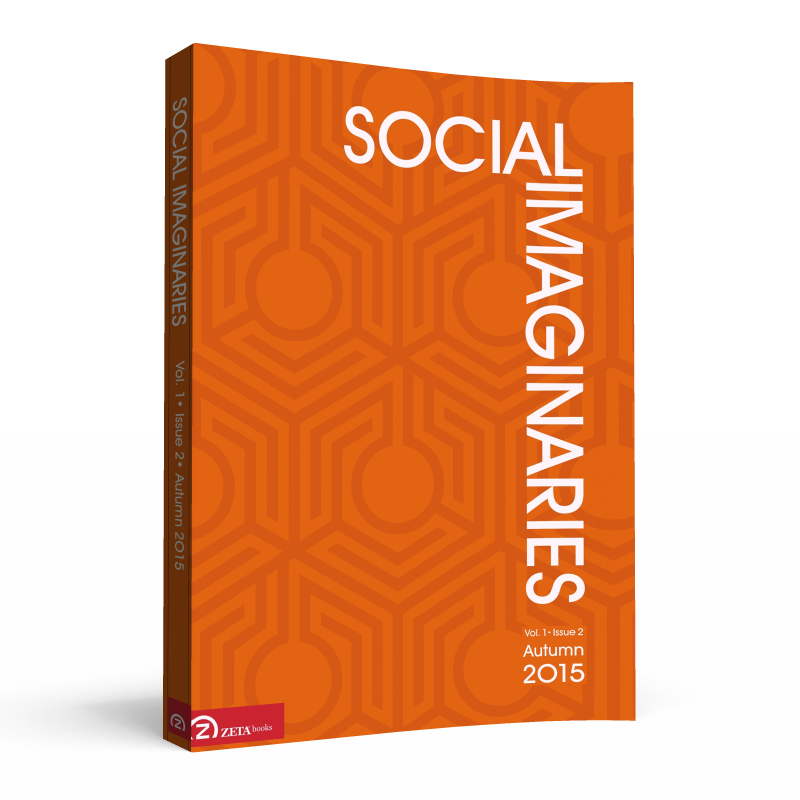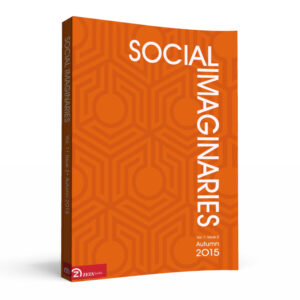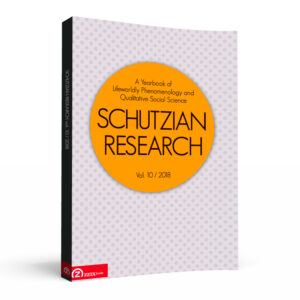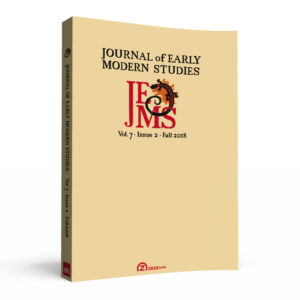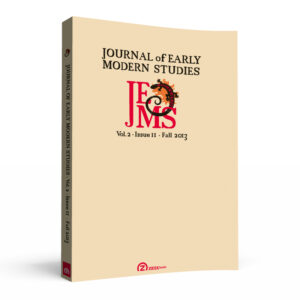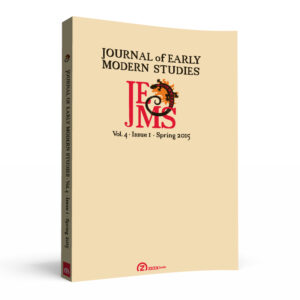Table of Contents
Suzi Adams and John W. M. Krummel: Introduction
George H. Taylor: The Phenomenological Contributions of Ricoeur’s Philosophy of Imagination
- Abstract: In his work on productive imagination, Paul Ricoeur reorients the imagination away from its reproductive side – as copy of an image, a copy of an existing reality – to its productive potential that can break through not only the prison house of language but the prison house of existing social and political structures. Using the lens of phenomenology, this article analyses the two deepest insights of Ricoeur’s theory of productive imagination. First, Ricoeur elevates application of the phenomenological theory of intentionality to decipher how it may create a space for productive imagination. The theory of intentionality requires consideration of consciousness as the consciousness of something where the ‘something’ is no longer real but the ‘absolutely nowhere.’ Ricoeur undertakes consideration of what this consciousness of may entail in his theory of fiction. He poses whether a theory of fiction can connect the unreal with the real by reshaping it intentionally. When the image has no original referent, then fictions may provide an original of their own. Second, Ricoeur shows us through his theory of iconic augmentation how the fiction can accomplish this remaking of our world. Here Ricoeur shows how phenomenology can engage in analysis of language as a form of productive imagination. The verbal icon as a productive image is the creation of a language that displays and so presents both a visual and a linguistic role. The icon augments in the sense that it is creative and increases reality. Fictions – including social-political utopias – may produce and display their own world, which may in turn enlarge our world.
Timo Helenius: Between Receptivity and Productivity: Paul Ricoeur on Cultural Imagination
- Abstract: This essay analyses Ricoeur’s notion of human being that is facilitated by cultural imagination (l’imagination culturelle). Following Ricoeur’s insight in his 1976 essay Ideology and Utopia as Cultural Imagination, this paper proposes that his more extensively examined notion of the mytho-poetic imagination, that extends to the social and practical imagination, is necessarily concretised as culture, or as human action that both receives and produces the cultural reality that is the context of a subject’s action, in order to gain ‘a hermeneutics of the being-able-to-be (pouvoir-être)’. I maintain that Ricoeur’s phenomenological hermeneutics of ‘being able’ is ultimately based on the cultural imagination initiating tradition-conscious change in the social reality that then facilitates the post-critical appropriation of one’s self as capable. In short, I claim that l’imagination culturelle is the basis for a sociocultural poetics of human action and, therefore, a condition for the birth of a situated subject in the positive fullness of belonging.
Adam Konopka: Embodiment and Umwelt: A Phenomenological Approach
- Abstract: This article reconstructs several aspects from Husserl’s phenomenology regarding the intentionality involved in embodied experience of a pre-given Umwelt. I argue that Husserl’s account of environed embodiment underlies and conditions his clarification of Natur (spatio-temporal materiality) and Geist (human cultural and historical achievements). This argument is situated in Husserl’s engagement of the 19th century debate between Wilhelm Dilthey and the Neo-Kantian Baden School concerning the methodological relationship between the natural sciences (Naturwissenschaften) and human sciences (Geisteswissenschaften). Husserl radicalized the debate between Dilthey and the Baden School by pluralizing Heinrich Rickert’s attitudinal characterization of concept formation and clarifying and developing Dilthey’s notion of a life-nexus. Husserl’s approach allows for an identification of the belief modalities of the natural attitude that are operative in feeling sensations oriented toward embodied resolutions involved in bodily regulation. The pre-reflective bodily self-awareness involved in feeling sensations correlated with an Umwelt as a horizon of relevancy and familiarity is the constitutive ground of both Natur (spatio-temporal materiality) and Geist (human cultural and historical achievements) investigated in the respective domains of modern scientific rationality. This reconstruction of Husserl’s approach shows that, despite criticisms to the contrary, Husserl overcame a dichotomy between Natur and Geist through an identification of their common ground in environed embodiment.
Ľubica Učník: The Problem of Morality in a Mathematised Universe: Time and Eternity in Dostoevsky’s The Brothers Karamazov and the Concept of ‘Love’ in Patočka’s Last Essay
- Abstract: In this paper, I will use Jan Patočka’s last written essay, ‘Notes on Masaryk’s Theological Philosophy’, to reflect on Dostoevsky’s novel, The Brothers Karamazov. According to Patočka, in this novel, Dostoevsky offers an answer to Kant and his notion of immortality as a feature of practical reason only. Kant’s intervention in modern philosophy is well known. It is much less discussed that his influence was to reformulate not only metaphysics, but also theology. Dostoevsky takes up the challenge of the Kantian solution and plays it out in his novels. His critique of science and utilitarian morality and his treatment of children, immortality and love will be the focus of this paper. I will suggest that the problem of a duality between rationality and divinity limits Dostoevsky’s critique of Kant.
Bernhard Waldenfels: The Equating of the Unequal
- Abstract: Equality and inequality are basic elements of law, justice and politics. Equality integrates each of us into a common sphere by distributing rights, duties and chances among us. Equality turns into mere indifference as far as we get overintegrated into social orders. When differences are fading away experience loses its relief and individuals lose their face. Our critical reflections start from the inevitable paradox of making equal what is not equal. In various ways they refer to Nietzsche’s concept of order, to Marx’s analysis of money, to Lévinas’s ethics of the Other, and to novelists like Dostoevsky and Musil. Our critique turns against two extremes, on the one hand against any sort of normalism fixed on functioning orders, on the other hand against any sort of anomalism dreaming of mere events and permanent ruptures. Responsive phenomenology shows how we are confronted with extraordinary events. Those deviate from the ordinary and transgress its borders, without leaving the normality of our everyday world behind. The process of equalizing moves between the ordinary and the extraordinary. What makes the difference and resists to mere indifference are creative responses which are to be invented again and again.
Kwok-ying Lau: War, Peace and Love: The Logic of Lévinas
- Abstract: In this article, I will show that behind Lévinas’s provocative interpretation of the whole history of Western ontology, as a state of war and its denunciation pronounced at the very beginning of Totality and Infinity, there is an internal logic. It is first of all a logic of negation: negation of the rationalization of war and violence committed in the name of the highest truth. It is also a logic of affirmation: affirmation, through love and justice, of plurality and infinity incarnated by the face of all figures of alterity. It is an affirmation of a utopia too: the utopia of an ethical politics aiming at restoration of justice by taking up the absolute responsibility towards the other as non-indifference to the suffering and the death of the Other. This utopia also aims at repairing the wound inflicted to the world by all forms of violence. So, Lévinas’ logic is a logic of politics of non-violence, accompanied by a continuous pathétique cry for love and peace.
Fred Dallmayr: ‘Man Against the State’: Community and Dissent
- Abstract: The relation between individual freedom and social community or solidarity is always tenuous and fraught with many possible conflicts or derailments. The essay examines two main forms of such conflicts: the first where individual pursuit of private self-interest completely overrules social solidarity; the second where individual freedom and even radical dissent serve to promote justice and a more ethical mode of solidarity. The formula ‘Man against the State’ goes back to Herbert Spencer and his advocacy of a radical laissez-faire liberalism. Relying on Hobbes and Locke, Spencer argued that in the ‘state of nature’ individuals are endowed with complete liberty, especially the freedom to acquire property – whose protection is the sole objective of government. In some formulations this argument gave rise to the doctrine of ‘social Darwinism’ and the motto of the ‘survival of the fittest’. In opposition to this ‘possessive’ or egocentric form of liberty the essay turns to more ethically grounded conceptions of individual freedom, civil disobedience and dissent, conceptions articulated especially by Thoreau, Mahatma Gandhi and Albert Camus, and also evident in the conduct of Socrates and some members of the German resistance movement. Here the conflict between individual freedom and solidarity serves as the lever to raise community to a higher level of ethical life.
Johann P. Arnason: Elias and Eisenstadt: The Multiple Meanings of Civilisation
- Abstract: The works of Norbert Elias and Shmuel Eisenstadt represent different versions of civilisational analysis. Elias focused on a long-term transformative process, more precisely on state formation and its ramifications in the course of Western European history, and neither he nor his disciples showed much interest in a broader comparative approach. Eisenstadt defined the civilisational dimension of human societies as a configuration of cultural and institutional patterns; he emphasised the plurality of such formations, but had little to say on the specific processual paths taken by each of them. So far, there has been no significant discussion of ways to bring the two approaches into closer contact. Such attempts can start with a brief examination of the common background in classical sociology: the notion of civilisation adumbrated by Durkheim and Mauss anticipated both Eliasian and Eisenstadtian lines of argument. Drawing on this source, it can then be shown that each of the two authors implicitly poses problems related to key concerns of the other. Elias’s account of the ‘long middle ages’ that gave rise to the early modern European state presupposes the overall civilisational context of Western Christendom as well as specific cultural-institutional shifts within it, especially those of the high middle ages. Eisenstadt’s interpretation of the Axial Age calls for further development through analyses of the historical processes unfolding in the wake of the axial turns.
ISSN: 2393-2503 (paperback)
ISSN: 2457-2926 (electronic)
ISBN: 978-606-697-008-2 (paperback)
ISBN: 978-606-697-009-9 (eBook)

